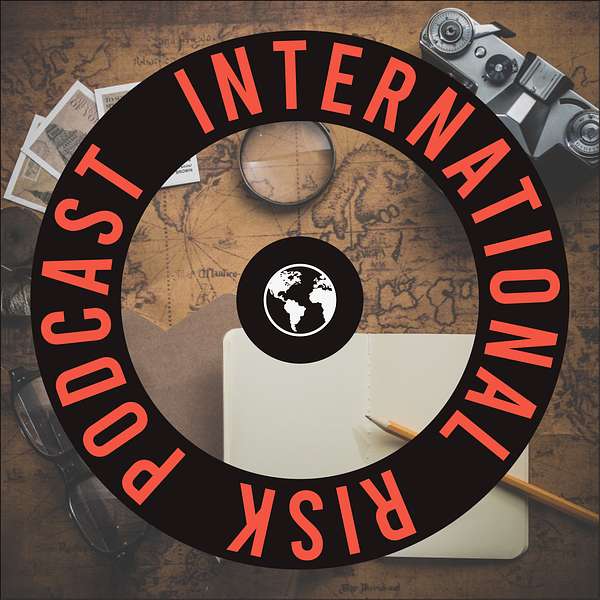
The International Risk Podcast
Welcome to The International Risk Podcast — the premier destination for high-level insights into global risk dynamics. Hosted by Dominic Bowen, an accomplished senior advisor, each episode delivers expert analysis and actionable intelligence on today’s most pressing international risks. From geopolitical tensions and economic upheavals to cybersecurity threats and environmental challenges, we bring clarity to the complex risks shaping our world.
Tailored for CEOs, Board Members, senior managers, and risk professionals, our weekly episodes are essential listening for those making strategic decisions in volatile environments. With distinguished guests from diverse sectors and geographies — including renowned industry experts, policymakers, and thought leaders — we provide a multidimensional perspective, equipping you with insights to stay ahead of emerging threats and capitalize on new opportunities.
Our host, Dominic Bowen, is a senior business leader, and Partner at 2Secure where he is Head of Strategic Advisory and leads a team of senior management consultants and advisors.
Join us for engaging, thought-provoking conversations that go beyond the headlines. Stay informed, stay ahead, and transform the way you perceive and manage international risks. The International Risk Podcast is not just a podcast; it’s is crucial listening for today's leaders.
The International Risk Podcast
Ep 160: Misinformation, An Exploration of Its Tail Risks With Stephen Lewandowsky
The International Risk Podcast is a weekly podcast for senior executives, board members, and risk advisors. In these podcasts, we speak with experts in a variety of fields to explore international risk. Our host is Dominic Bowen, Head of Strategic Advisory at one of Europe's leading risk management consulting firms. Having spent the last 20 years successfully establishing large and complex operations in the world's highest-risk areas and conflict zones, Dominic now joins you to speak with exciting guests from around the world to discuss international risk.
The International Risk Podcast – Reducing risk by increasing knowledge.
Follow us on LinkedIn for all our great updates.
Misinformation, often referred to as false or inaccurate information, has become a prevalent issue in the digital age. With the rapid growth of social media platforms and the easy access to information online, misinformation can spread quickly and widely, influencing public opinion, shaping beliefs, and even impacting important societal decisions. Misinformation can take various forms, including fabricated news stories, manipulated images or videos, misleading statistics, and deceptive narratives. It can originate from various sources, including individuals, organisations, or even state actors with specific agendas. The consequences of misinformation can be far-reaching, leading to confusion, mistrust, polarisation, and sometimes even harm to individuals or communities. As such, combating misinformation has become a significant challenge for governments, tech companies, media organisations, and individuals alike, requiring a multi-faceted approach that involves fact-checking, media literacy education, and responsible online behaviour.
Misinformation is not just an issue for the here and now; in its current form, the actions taken as a result of trust in misinformation, or public disinformation campaigns can pose significant risks to society and the political landscape as we know it. To help us unpack these risks, we are privileged to be joined by Professor Stephan Lewandowsky.
Professor Stephan Lewandowsky is a cognitive scientist at the University of Bristol whose main interest is in the pressure points between the architecture of online information technologies and human cognition, and the consequences for democracy that arise from those pressure points.
His research examines the consequences of the clash between social media architectures and human cognition, for example by researching countermeasures to the persistence of misinformation and spread of “fake news” in society, including conspiracy theories, and how platform algorithms may contribute to the prevalence of misinformation.
He is also interested in the variables that determine whether or not people accept scientific evidence, for example surrounding vaccinations or climate science.His research is currently funded by the European Research Council, the EU’s Horizon 2020 programme, the UK research agency (UKRI, through Centre of Excellence REPHRAIN), the Volkswagen Foundation, the John Templeton Foundation (via Wake Forest University’s “Honesty Project”), Google’s Jigsaw, and by the Social Sciences Research Council (SSRC) Mercury Project.